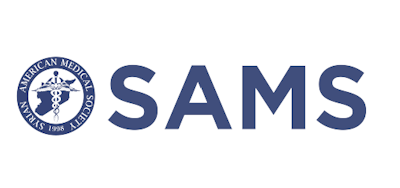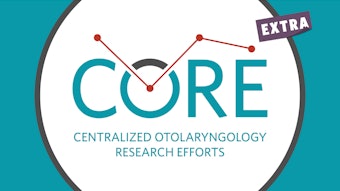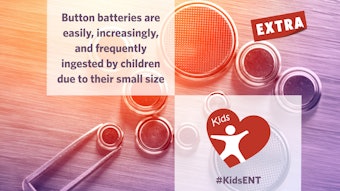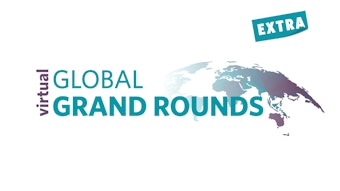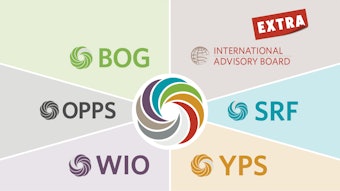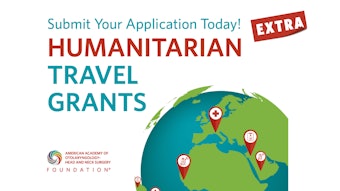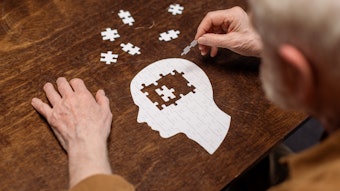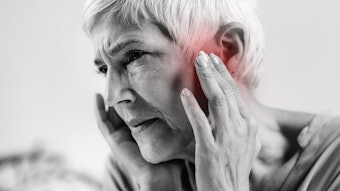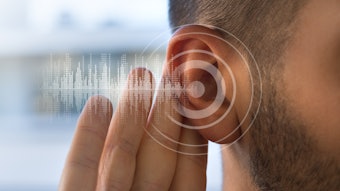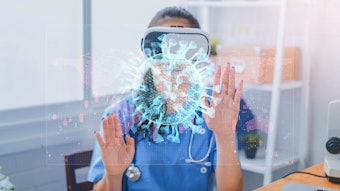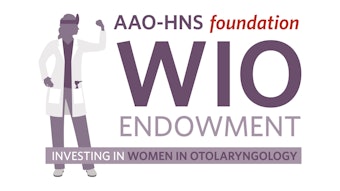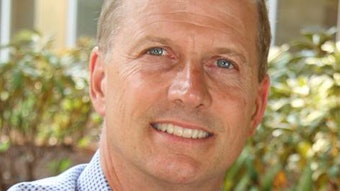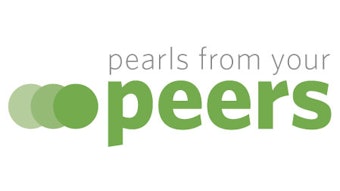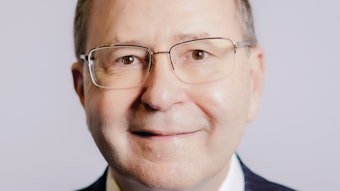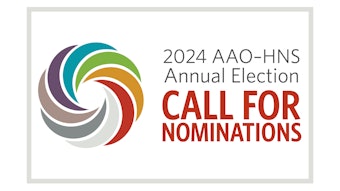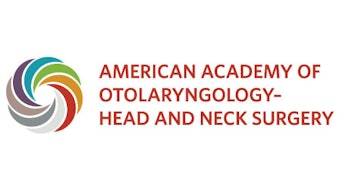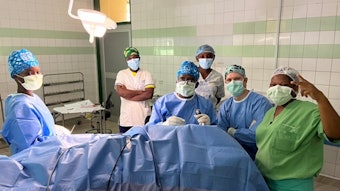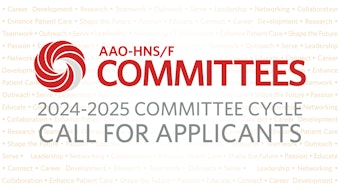Stories from the Road: Syrian American Medical Society Lebanon
Learn more about the SAMS Foundation’s healthcare relief efforts.
Samer Al-khudari, MD, Humanitarian Efforts Committee member
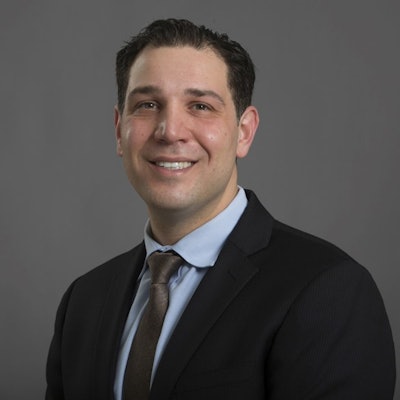 Samer Al-khudari, MD
Samer Al-khudari, MD
SAMS provides healthcare relief in all major surgical and medical specialties to the region. Specifically, to help refugee populations, SAMS has developed a model of multisubspecialty mission trips that occur regularly and coordinate with local teams and social support services to facilitate education support and develop sustainable programs. Several missions a year are planned with a focus on otolaryngology medical and surgical care in addition to oral maxillofacial and dental missions, which occur regularly. Otolaryngology and facial plastic missions have been organized to Lebanon, Jordan, Turkey, and Syria.
This update is focused on the efforts of SAMS to the neighboring countries, Lebanon.
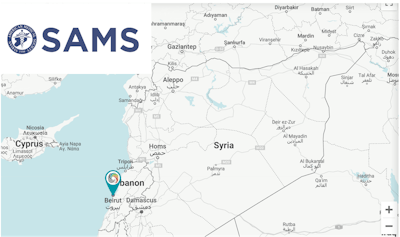
Visit the AAO-HNSF Humanitarian Efforts map for more information.
Location and Need
Lebanon is a beautiful country with a rich history and culture. There are 1.5 million refugees currently in Lebanon, dispersed throughout the country but most concentrated in in the Bekaa Valley. There is a need for subspecialized care in otolaryngology for a group of patients with overall limited or no access to healthcare. Often these patients, when able to access care after extreme delays, are met by financial constraints. Additionally, the area lacks subspecialists to provide care—typical relief aid, if offered, only covers life threatening, acute in-patient care.
SAMS supports local primary care and dental clinics. Often, patients seen at these clinics require otolaryngology consultation. Despite limited access for healthcare overall, if they are eventually able to undergo otolaryngology evaluation, they are not able receive the recommended intervention. These patients are identified, and their care is delivered during the SAMS subspecialty missions. As the population at risk can be transient, so can the local healthcare surgeons when available local surgeons join the team to help coordinate care and follow up in addition to the local primary clinics.
Question and Answer with Robert H. Deeb, MD, Director of Facial Plastic Surgery at Henry Ford Health System in Detroit, Michigan
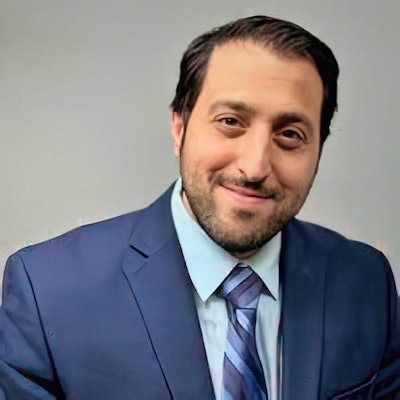
A. My first experience with SAMS Lebanon was on a mission trip in 2018. SAMS is a premier organization that is providing comprehensive healthcare in some of the most difficult conditions. The organization is made up of a variety healthcare specialists as well as a dedicated administrative staff. SAMS Lebanon has shown particular commitment in caring for the Syrian refugee population and has been excellent in developing a network of caring medical providers.
Q. What are some of the more common patient issues you have encountered during your outreach trips to Lebanon, and what are some of the most impactful procedures you have been able to offer?
A. During my humanitarian outreach work in Lebanon, the focus has been on facial reconstructive surgery, as well as functional nasal surgery. Some of the most impactful surgeries revolve around treating severe nasal obstruction due to nasal deformities. These patients have often suffered for many years with difficulty breathing, which can impact sleep and overall quality of life. Additionally, we perform scar revision surgery on different areas of the face, which can also relieve pain, irritation, as well as stigmata associated with facial deformities.
Q. In addition to providing medical and surgical care, what are some of the other goals of the humanitarian outreach trips?
A. Often the humanitarian trips result in a great deal of team building and networking, which then acts to enhance the overall SAMS mission of providing high quality care to those in need. We are also able to form connections with local healthcare providers and administrative staff, which then allows for greater continuity of care.
Additionally, a core tenet of the trips is teaching. Trainees often join, and we are able to expose the next generation of surgeons to the environment with the hope that they will stay engaged with SAMS and humanitarian outreach work.
Q. Tell us about a patient who was positively affected by the SAMS Lebanon Team?
A. On our first mission trip, we met a young teacher named Fadi. He spoke English well and told us the story of how his nose was entirely transected due to a shrapnel injury that had also required prior brain surgery at the time of initial injury. It was truly a devastating injury, and he had not been able to find the care he needed up to that point. In working with my colleagues, we were able to build him a new nose using his own rib and tissue from his forehead. He remained in contact with me for several years and ended up undergoing several more surgeries to further refine his results. Fadi is a true success story and very much emblematic of the work that SAMS can do.
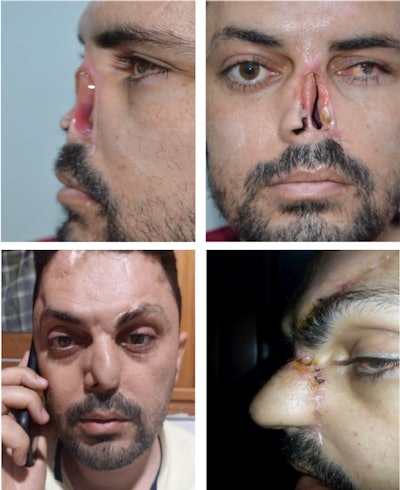
Mission
The mission of SAMS is to save lives, alleviate suffering, advocate for medical neutrality, and ensure a healthier future for Syrians inside Syria, in neighboring countries, and beyond through medical relief and healthcare development. SAMS works to serve the medical needs of patients in need, regardless of their religious background, race, ethnicity, or political affiliation. SAMS mainly operates in Syria, Jordan, Lebanon, and Turkey. Inside Syria, SAMS provides medical care and relief, supporting over 110 medical facilities and more than 3,000 medical personnel.
